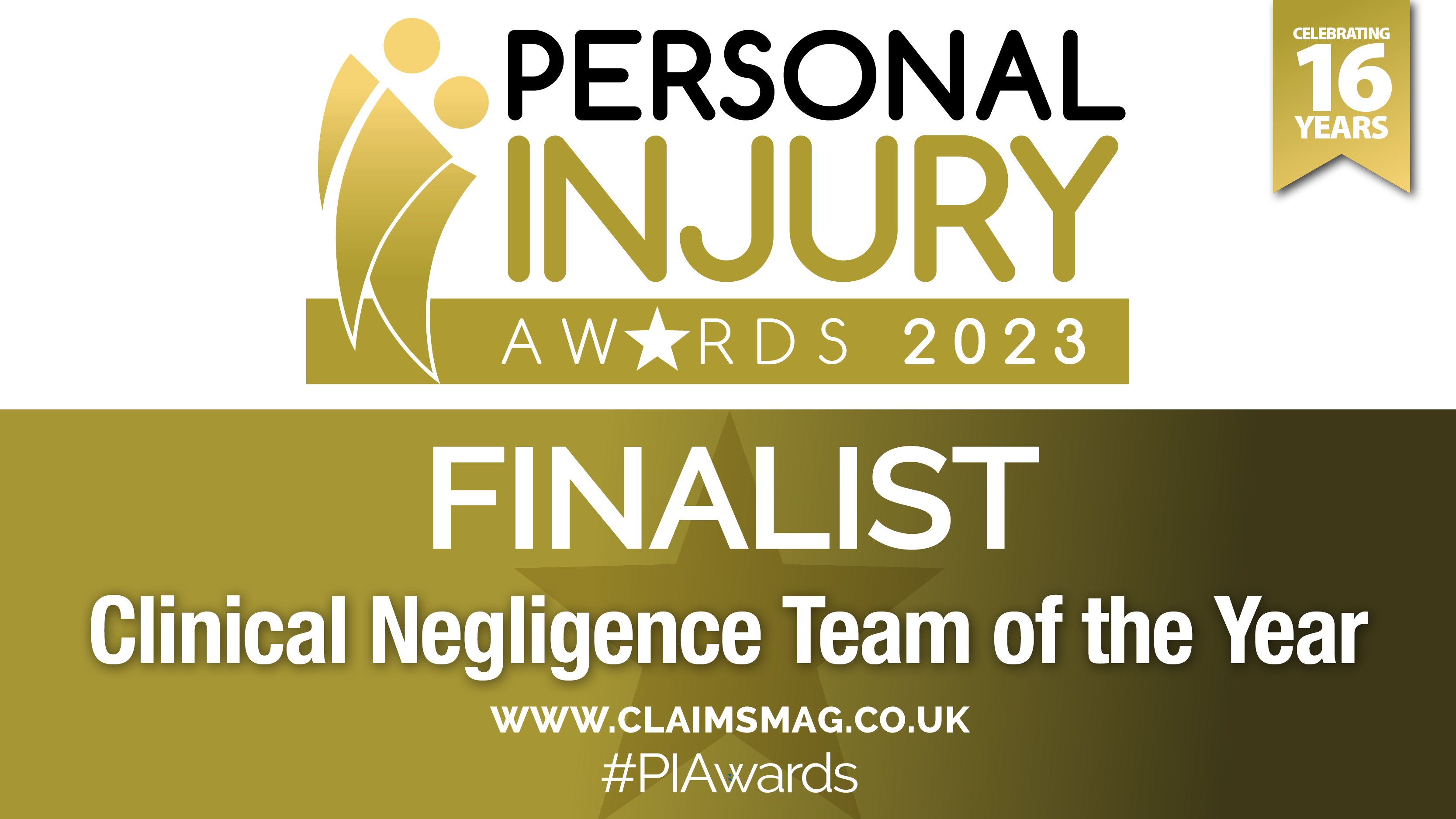Personal
Brachial Plexus Injuries Guide
SOLVING PERSONAL LEGAL MATTERS

In some cases, you or your child may become injured during the birthing process due to the negligence of a medical professional, which could make you eligible to receive compensation. A common example is the brachial plexus injury, which can lead to long-term disabilities and mean your child may require necessary additional medical attention. Whilst compensation won't reverse what has happened, if you successfully win your claim, it may mean you are able to get the best care for your child and help with their recovery or medical care.
At Forbes Solicitors, we have experience with these types of negligence claims and can get your family the compensation you need. Our talented birth injury claims team will aim to understand your situation and see how we can help, offering bespoke advice and support where we can. This guide explains how to spot brachial plexus injury symptoms, the long-term impact it could have on your child, and the process of making a claim. Read on to find out more about how you can help your child and seek compensation.
What is a Brachial Plexus injury?
It is an injury that happens when nerves connected to the spinal cord through the neck and arm suffer damage due to being torn, ripped, or compressed. It is a fairly common birth injury, with most children able to recover, but in some cases, it can result in a need for further medical attention and long-term disabilities.
A brachial plexus injury can sometimes be due to mistakes made by medical professionals who were responsible for looking after you and your baby, mistakes which could have been avoided had they provided a better level of care. If you believe that your child has suffered from a brachial plexus injury as a result of medical negligence, it's important to contact our birth injury claims team and see if you are eligible to receive compensation.
What are the symptoms of a Brachial Plexus injury in babies?
There are a variety of symptoms when it comes to a brachial plexus injury and it can be difficult to detect in young children, some examples of symptoms are:
- Restricted movement or a lack of sensation in the upper arm
- Muscle weakness in the affected arm
- Paralysis
- Pain (but not in all cases)
It's important to recognise the symptoms of a brachial plexus injury so that you can detect the cause of pain or suffering in your child. The symptoms of brachial plexus injuries can be temporary, but in some cases, they are more severe. The earlier you are able to diagnose your child with a brachial plexus injury, the sooner you will be able to know whether it will have a long-term effect on their quality of life and whether it could be due to medical negligence.
Are there different types of Brachial Plexus injuries?
Depending on the severity of the injury and the nerves that have been damaged, there are different types of brachial plexus injuries. There are three main types of nerve injury, which are stretch (neurapraxia), rupture, and avulsion, with each being more severe.
Based on the type of nerve injury, brachial plexus can result in other conditions, such as:
- Erb's Palsy: a brachial plexus injury involving the upper nerves of the arm, which can cause weakness and restricted movement in the shoulder and bicep. It can be treated with physical therapy.
- Total Plexus Involvement: this type of brachial plexus injury involves all five nerves and makes up about 20-30 percent of injuries. This can cause children to have little to no movement in their arm, hand, or shoulder.
- Horner's Syndrome: this type of brachial plexus injury is quite severe, making up 10-20 percent of total injuries, and happens when the nerves are torn from the spinal cord. This can cause a number of additional symptoms.
- Klumpke's Palsy: this tends to affect movement in the hand and rarely happens in children and babies.
Is Brachial Plexus a disability?
If your child's brachial plexus injury is severe enough it can lead to a disability, ranging from mild to serious. In some children, treatment and rehabilitation can help them to overcome the effects of their injury, whilst in others it can be much more resistant and mean the child has no movement in one arm.
How is a Brachial Plexus injury treated?
This type of birth injury can be difficult to treat and the level of treatment that will be affective is completely dependent on the type of nerve damage and the severity of the injury. If diagnosed, your child's medical team should conduct ongoing exams and observations to monitor their recovery process, as well as offer physical therapy to help encourage movement and prevent atrophy.
If your child's brachial plexus injury is severe then they may require surgery as a form of treatment, with the option of:
- Nerve Surgery: the repair or reconstruction of the nerves using nerve grafting and nerve transfer procedures.
- Osteotomy: the improvement of upper extremity function by cutting the bone and reorienting it.
- Tendon Transfer: this is when a tendon is reattached to a new location to return normal function and movement.
- Open Reduction of the Shoulder Joint: helps to improve consistent muscle weakness in the arm through tightening the muscle tissue.
- Free Muscle Transfers: this is when muscles from the leg are transferred to the arm, shoulder, or hand to regain movement.
Can you seek compensation for a Brachial Plexus injury?
In some circumstances, you baby may have experienced a significant brachial plexus injury due to the medical negligence of those who were responsible for your care. In this case, should you be able to prove it, you may be able to receive compensation as part of a brachial plexus claim.
At Forbes Solicitors, we will assess your claim and see if you have enough evidence to allow us to move forward with it. If we believe you are able to make a claim, we will offer you expert advice and support to help you through what can be a difficult time.
Making a brachial plexus injury claim for medical negligence
If you're the parent of a child who received a brachial plexus injury during their birth that was due to mistakes made by the medical team, you need specialist advice to find out if you can make a claim for compensation. Get in touch with our expert team to find out more.
Contact Us
Get in touch to see how our experts could help you.
Contacting Us
Monday to Friday:
09:00 to 17:00
Saturday and Sunday:
Closed
Our dedicated Clinical Negligence team

Contact Us
If you have a general enquiry then please fill in your details and someone will contact you.
Contacting Us
Monday to Friday: 09:00 to 17:00
Saturday and Sunday: Closed












